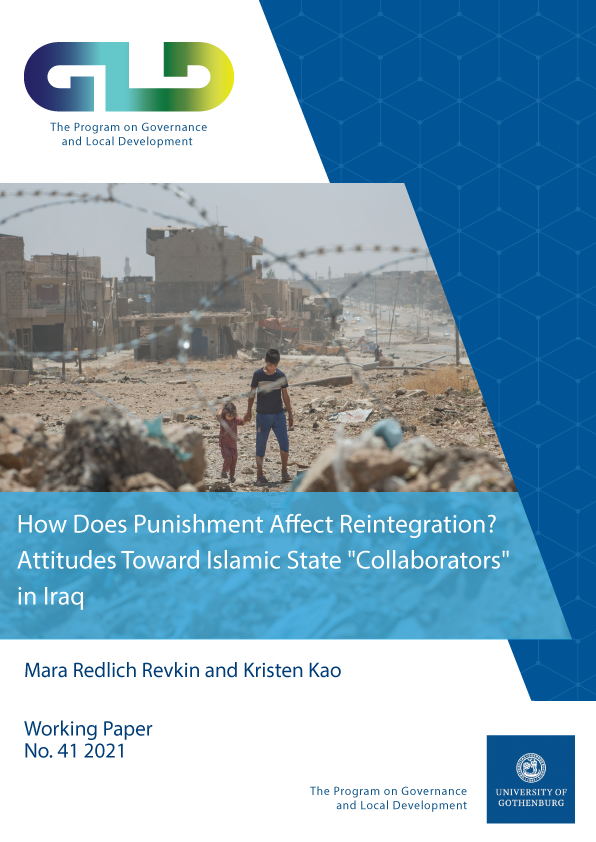No.41 How Does Punishment Affect Reintegration? Attitudes Toward Islamic State "Collaborators" in Iraq
Mara Redlich Revkin and Kristen Kao
Abstract
How does variation in the severity of punishment affect public opinion toward the reintegration of former nonviolent offenders? We study this question in the context of Iraq, where the United States has been heavily involved in the design and development of criminal justice institutions since overthrowing Saddam Hussein’s dictatorship in 2003. Building upon extensive fieldwork and interviews in Iraq, we designed a survey experiment that randomly varied the severity of sentences in hypothetical scenarios of nonviolent Islamic State “collaborators” (e.g., cleaners, cooks, and wives of fighters) to estimate the causal effects of punishment on attitudes toward reintegration. We find that a long prison sentence (15 years) does not increase the participants’ willingness to allow the reintegration of former offenders, but a noncarceral punishment (community service) has a small, but statistically significant, positive effect. Our most striking finding is that noncarceral and community-based justice mechanisms can significantly increase the likelihood of successful reintegration after punishment. Fifteen percent of respondents who were initially opposed to the return of former offenders to their communities said that they would be willing to support reintegration if they were asked to do so by a tribal or religious leader, or if the offender completes a noncarceral rehabilitation program. These findings suggest that noncarceral, restorative, and community-based justice mechanisms may be equally or more effective than long-term incarceration for achieving the objectives of rehabilitation and eventual reintegration of former nonviolent offenders. Our study also advances the field of comparative empirical legal scholarship by providing an innovative experimental research design that can be replicated by scholars studying the causal effects of criminal justice policies in other contexts.
